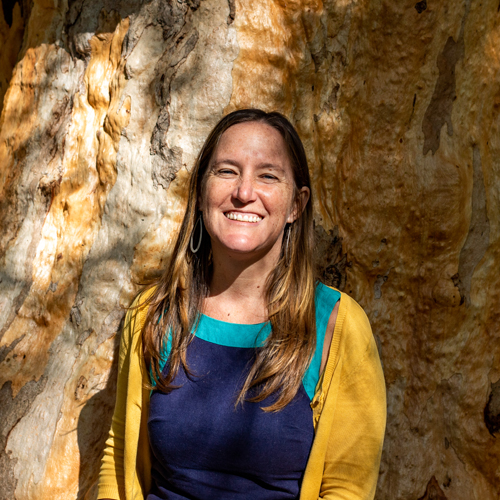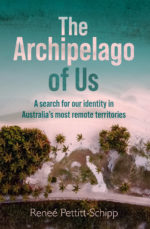Reneé Pettitt-Schipp said she didn’t want to face the dark underbelly of nationalism, but felt compelled to write her book in order to motivate us all to help bring Australia’s inhumanity to an end

In this piece, she tells us more about The Archipelago of Us – her beautifully written and compelling memoir about living and working in Australia’s Indian Ocean Territories, the place where Australia’s identity is laid bare and where our self-image is challenged at every level.
What do you hope readers will get out of it?
The Archipelago of Us is my story of returning to Christmas Island and the Cocos (Keeling) Islands in 2016 to come to term with my memories of teaching asylum seeker children and young adults in detention in 2011. What I hope the reader will get out of the work is a sense of wonder at the beauty and complexity of the natural world, an appreciation of how a deep joy resides where we see life thrive. But most of all, through the sharing of specific stories, I want the reader to experience the humanity of asylum seekers, to experience the ways in which they are ordinary people who have often lived through extraordinary trauma, and once this understanding hits head and heart, consider what our responsibilities are to people seeking sanctuary in our country.
You returned to the islands to learn more about the history of the place. How did that help you process your original experiences?
I think many people who have worked at the margins of our nation come away traumatised from their experiences of the consequences of Australia’s border protection policies, but what plays out is so complex it is hard to unpack or understand. I needed to unpack what I had witnessed so I could make sense of it and my forever-changed life, but what I discovered is that what plays out on the islands is enabled by its historical context. To understand the history of what has taken place historically in the Indian Ocean Territories, both out of sight and out of mind of the Australian public, helped me make sense of how such racialised violence can become normalised, and why it is so important that we continue to challenge the bipartisan policies around offshore processing. We need to take responsibility for what is done in our name.
Your collection of poetry touched on similar themes. Why return to them in prose?What does each genre have to offer you as an artist and the world of readers?
When I wrote the poetry collection, I thought I had come to terms with what I had witnessed in the Indian Ocean Territories, and the poems did perform some kind of alchemy – turning some of my most difficult experiences into what I hoped were images of heartbreak and beauty. But the more time went on, I had this quite unsettling sensation that all I had done was describe the tip of the iceberg, and something dark and enormous loomed beneath.
I didn’t want to write The Archipelago of Us, I didn’t want to face the dark underbelly of nationalism, but the need to make sense of what I saw became overwhelming. There is a poem in The Sky Runs Right Through Us called ‘Parting Glass’. It is about the attempted suicide of a friend in detention who tried to kill himself by drinking cleaning fluids. The Comcare Commission report= by the Australian government in 2011 found that twelve asylum seekers attempted suicide or self-harmed in some way every day on Christmas Island. It was not enough to use rich imagery to tell this singular story; I needed to find a more literal way of speaking to a broader audience about the cruelty of mandatory detention and Australia’s border policies so my experiences could have a more direct meaning and purpose, to motivate others to help bring this inhumanity to an end.
Is there anything else you’d like to add?
While all this might sound quite bleak, I wrote The Archipelago of Us with the audience always present on my shoulder. I wanted the reader to experience the incredible beauty and rich biodiversity of these wild island-scapes, as well as see the goodness and generosity of many people who live there. I try to reward the reader for staying with me through the challenging chapters by also taking them diving with hawksbill turtles and giant trevally, laying belly down on the forest floor with a field of red crabs munching their way through their day, or hearing the sound of call to prayer from the mosque float over the water in gentle afternoon light. This story is ultimately about our deep interdependence on one another, and I was acutely aware of needing the reader to stay with me on the journey of discovery together. The meaning of my work was dependent on my engagement with the reader. My wish is that the reader experiences the fullness of the islands, the dark and the light, and the entanglement of all life, both the human and more-than-human, with our own. The writing of The Archipelago of Us helped me to understand and accept our deep connection to one another is something to honour and celebrate. I believe the work is ultimately hopeful, perhaps something of a mud map toward a future for all in our ‘Fair Go’ nation.
The Archipelago of Us is available in all good bookstores and online.



